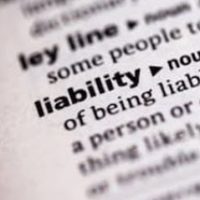Premises Liability & Child Trespassers

Premises liability is a theory of law that states that a business or property owner can be liable for injuries suffered by a visitor to those premises. Florida law holds that most of the time, the owner is not liable for any injuries suffered by an adult trespasser. However, the situation is very different when the trespasser is a child. In that scenario, a landowner may be liable under a theory called “attractive nuisance,” even though they otherwise exercised all due care.
What Duty Of Care Is Owed?
Premises liability recognizes three different types of visitors, each of which is owed a different degree of care. A property owner must only refrain from willfully injuring an adult trespasser, and for a licensee (someone who is on the premises for business of their own, rather than at the owner’s invitation), the owner must not intentionally expose them to danger. The most care is owed to an invitee – that is, someone present at the owner’s invitation, such as a visitor to a museum or a customer in a business.
If a visitor is injured, the court will determine whether the landowner breached the duty of care they owed to that person, which can sometimes be difficult. However, these standards are based on adults, who are presumed to be able to know right from wrong, and to appreciate potential danger. When the trespasser is a minor child, neither of those factors may be present, and the attractive nuisance doctrine comes to the fore.
Must Take Reasonable Precautions
The attractive nuisance doctrine in Florida is only applicable for property owners who may ‘reasonably’ anticipate the presence of young children – foreseeability of harm is a cornerstone of liability (in other words, a person cannot be held liable for harm they could not anticipate). It states that if a landowner is aware of a condition on their land that might reasonably attract minor children, and the risk to children is greater than the potential expense of making it safe, the landowner must take those precautions or face liability.
Be advised that while state law does list examples that may be considered attractive nuisances – including washers, dryers, and other “airtight units” like refrigerators – this is not meant to be an exhaustive list. Other potential attractive nuisances can include swimming pools, trampolines, and landscaping projects and equipment, but anything that fits the criteria and could potentially attract children may qualify.
Contact A Tampa Premises Liability Attorney
When a child is injured, it can feel too overwhelming to think about seeking damages for what they have been through – but if their injuries happened because of an attractive nuisance, know that your family has the right to seek redress. A Tampa premises liability attorney from the Rinaldo Law Group can offer dedicated and compassionate representation at what can be a frightening time for your family. Call our offices today for a free consultation.












